On Sunday afternoon, 9 November 2014, the crowded hall of the Centro Astalli of the Jesuits welcomed the perturbing testimony of Grégoire Ahongbonon, a ‘small and modest repairer of wheels’, as he defines himself, the great founder of the Saint Camille de Lellis Association which in Africa provides care and rehabilitation to the mentally ill – as we can see – and since 1995, above all in Benin and the Ivory Coast, has freed men and women who are in chains. It frees them literally from chains which often envelop the very flesh of the bodies of these ‘mentally ill people’ who, if they are not abandoned to themselves – they wander naked in the streets of urban centres going to rubbish tips in search of food – are blocked with metal clamps. These are men and women whose mental deficits are simply diagnosed as daemonic possession, the outcome of magic or witchcraft!
Because of a culture that is the result of abject poverty and superstition which has roots in the whole of Africa, a mentally ill person is seen as shameful by his or her family because he or she is thought to be possessed by spirits and thus as somebody to be concealed and distanced. It is believed that such illnesses cannot be cured and therefore the situation of mental health care is critical – one need only think that in the Ivory Coast there are only two psychiatrists. As a consequence, those who suffer from mental disturbances of various kinds, which can go from a light disturbance to a more serious problem, are segregated for years, chained with clamps, separated from other people, abandoned to themselves, deprived of food and water and in the end condemned to a terrible fate. These ‘mad people’ are not only no longer seen as human beings: they are not even seen as animals. Grégoire tirelessly goes to search them out – village by village, home by home. And first and foremost he frees them physically from the chains that imprison them because ‘it is not possible for a human being to go on enduing these sufferings’. Then he attends to freeing their souls: he takes them with him to special centres to treat them with what he calls a ‘therapy of love’ in order to reintegrate them one day into their families through a therapy of responsibility which seeks to restore hope, dignity and trust. ‘The way you look at a sick person means everything for him’, Grégoire explains, ‘he already knows if you love him or not, he already knows if you pay attention to him’. In the special centres where work is provided these sick people are not different from other people. ‘We healthy people’, Grégoire explains, ‘think that they are different yet they are able to do the same things that everybody does. When you a sick person is helped, within a few months you can already find him in a work centre. A person need only rediscover trust, rediscover love, he needs only to be reintegrated, and everything starts afresh’.
The scene that literally silenced the hall was when he took out of his rucksack a metal clamp which blocks the head, the hands and the feet of a person: this is the ‘therapy’ that is meted out to these sick people: chained to some tree, to the vagaries of the weather, under the sun, without food or water, waiting for the ‘demon’ to leave them.
Grégoire is married and today is the father of six children. He lives in Bouaké in the Ivory Coast. He emigrated from a village in Benin in the 1970s and prospered in the great cities of the Ivory Coast. He used reason and magic charms; he knew about many religions and forms of magic and chose the most effective remedies according to the case. He collapsed under the burden of debts and confusion, tried to kill himself, saw death in the eyes but was saved by a miracle.
It was during this period that Grégoire underwent a profound encounter with God and drew near again to the Catholic Church, taking part in 1982 in a pilgrimage to Jerusalem during which a phrase spoken by a priest touched him deeply: ‘Every Christian must lay a stone to build the Church’.
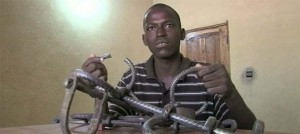 This phrase, in a sensitive soul and one made even more aware by a grave personal crisis, literally changed his life. Grégoire, indeed, went back to Bouaké, noticed a person who was wandering naked in the streets looking for food, went up to him and realised that he was a mentally ill person who because of his condition had been marginalised by society. He thus began to take up the cause of people with mental disturbances and discovered the inhuman conditions in which they live in Western Africa, where it is believed that they are afflicted by witchcraft. He realised that the chaining up and abandonment of these individuals in the streets are widespread practices that are accepted by the local communities. Grégoire thus decided to dedicate his life to people with mental disturbances and the marginalised of society and began to free people with mental problems from their chains and to take them in. After returning to Bouaké in the Ivory Coast he established a prayer group which was soon transformed into a charity group for sick people in need of care and treatment – the St. Camillus de Lellis Association of Bouaké.
This phrase, in a sensitive soul and one made even more aware by a grave personal crisis, literally changed his life. Grégoire, indeed, went back to Bouaké, noticed a person who was wandering naked in the streets looking for food, went up to him and realised that he was a mentally ill person who because of his condition had been marginalised by society. He thus began to take up the cause of people with mental disturbances and discovered the inhuman conditions in which they live in Western Africa, where it is believed that they are afflicted by witchcraft. He realised that the chaining up and abandonment of these individuals in the streets are widespread practices that are accepted by the local communities. Grégoire thus decided to dedicate his life to people with mental disturbances and the marginalised of society and began to free people with mental problems from their chains and to take them in. After returning to Bouaké in the Ivory Coast he established a prayer group which was soon transformed into a charity group for sick people in need of care and treatment – the St. Camillus de Lellis Association of Bouaké.
Having hit bottom, he rediscovered Christianity: no longer the Christianity of the whites, the religion of the powerful, that of the colonisers taken as a model by blacks who have money. The Christianity of those who, body and soul, are really like Jesus Christ on the cross. Although poor he decided to dedicate himself to those who were worse off then he. He founded a Christian charity group: he and his friends visited the sick but they did not have medicines to offer – they limited themselves to washing them and to keeping them company. Looking for the last of the last they discovered, after those in prison, the mentally ill. They gradually got down to practical matters and looked for help in the Ivory Coast and in the West, they founded the first hospitals and created in Bouaké what was the only centre able to help the lost figures of every kind which had been increased in number by the war of 2002. In the centres of Grégoire most of those who live there are Muslims. In Bouaké he took over the church of the hospital: the sick sleep there and on Sunday those who want to take part in the Mass take part in it and those who do want to take part in it leave or go on sleeping. They have a disenchanted outlook on the world and on life but they are full of hope.
The great commitment of Grégoire is to restore human dignity to these people by breaking their metal chains which block their flesh, but above all else by breaking the chains of ignorance that injure their dignity and their spirit.
In recent months a new centre has been opened in Djougou in Benin which has already taken in about 250 patients and the building of a new centre is about to begin in Alepé, a few kilometres from Abidjan in the Ivory Coast for which Grégoire received a gift of five hectares directly from the Apostolic Nuncio. ‘The work increases and now we have requests from Burkina Faso and Ghana as well’, says Grégoire, who still does not receive subventions, not even from governments. If he is asked how he will be able to proceed with all these centres, he spreads out his hands and with the faith that he always has answers you ‘Providence, my dear man…’ Today there are fifteen Saint Camille centres and in all they have 2,500 patients. The number of patients who have been reintegrated into their families is 22,000.



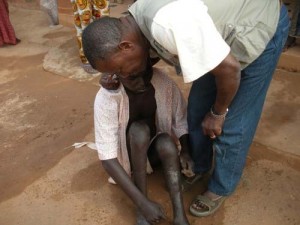





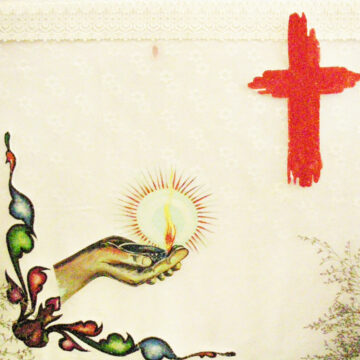
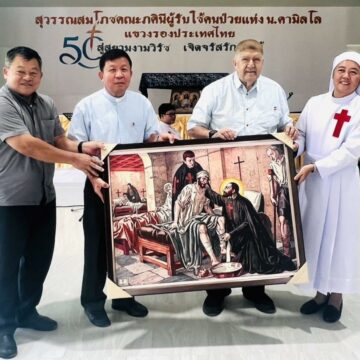
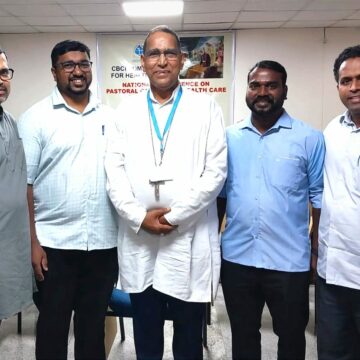
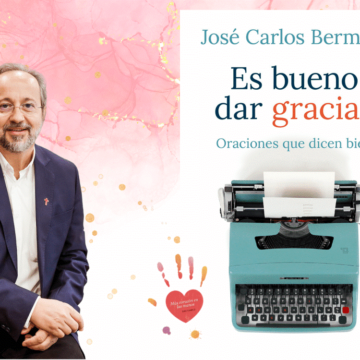

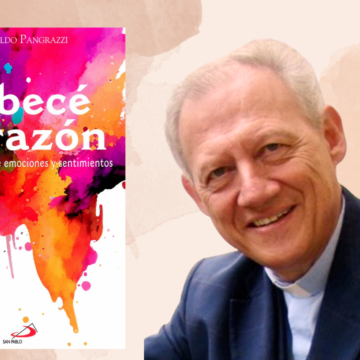
Camillians on Facebook
Camillians on Twitter
Camillians on Instagram